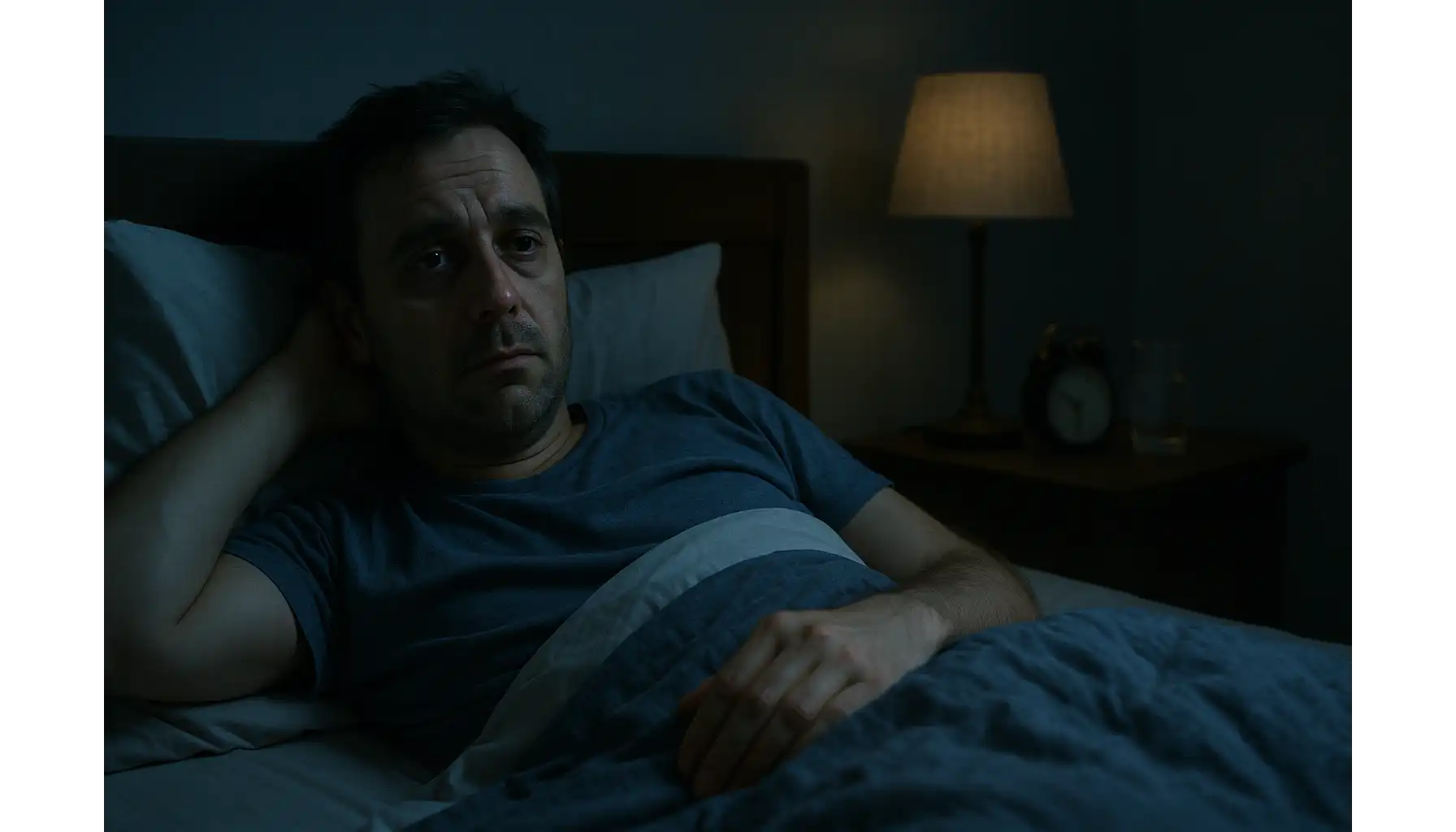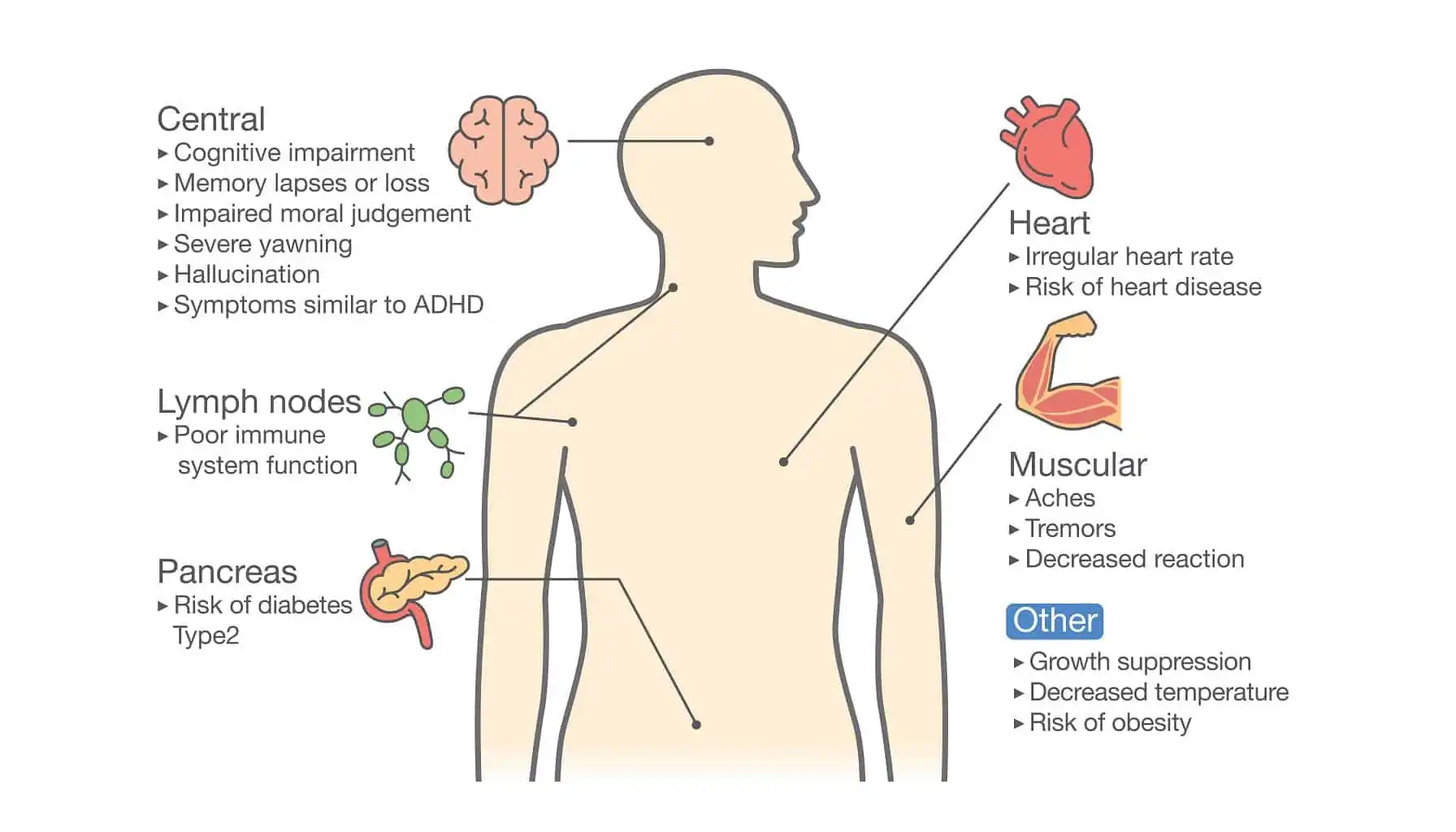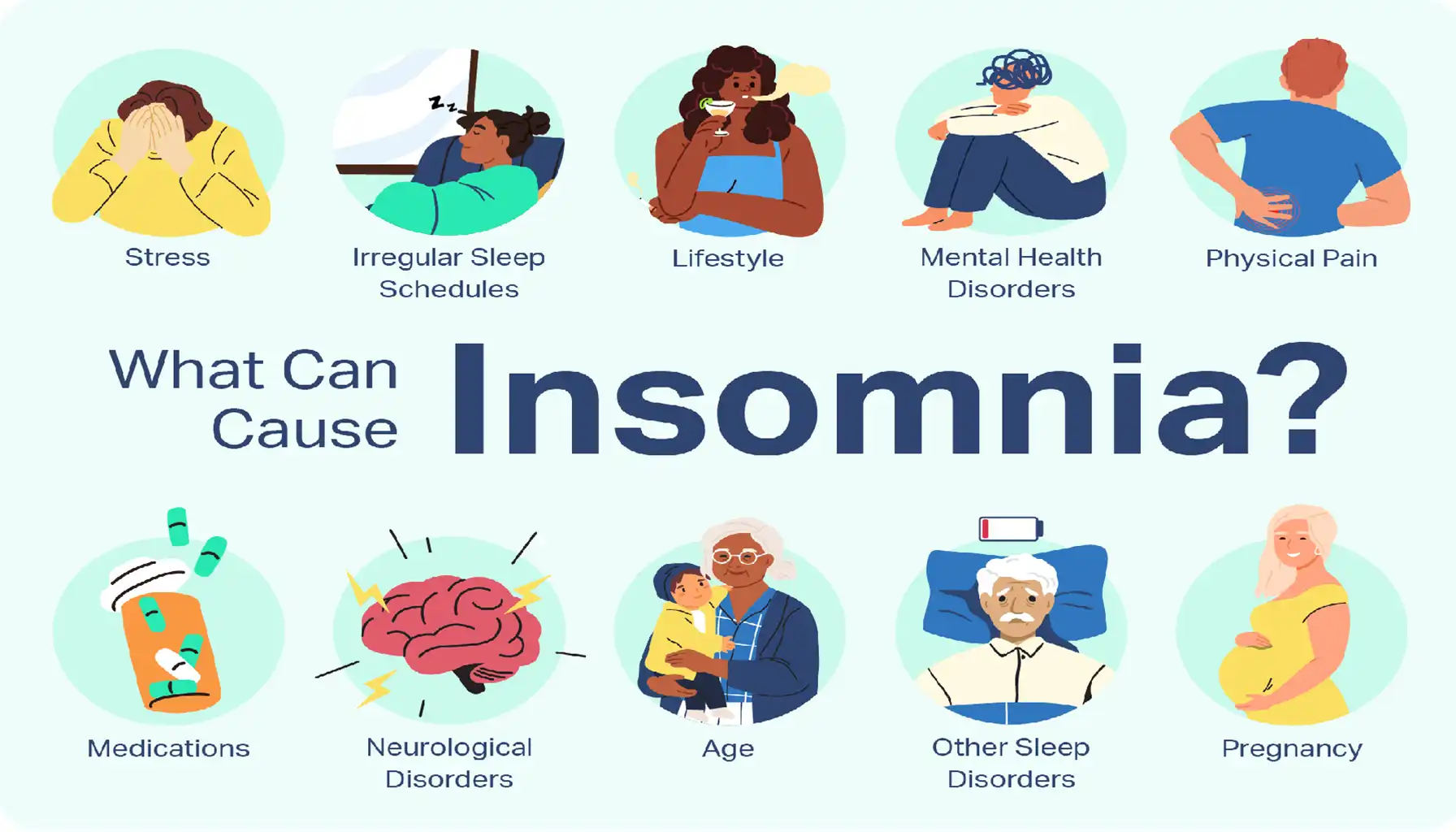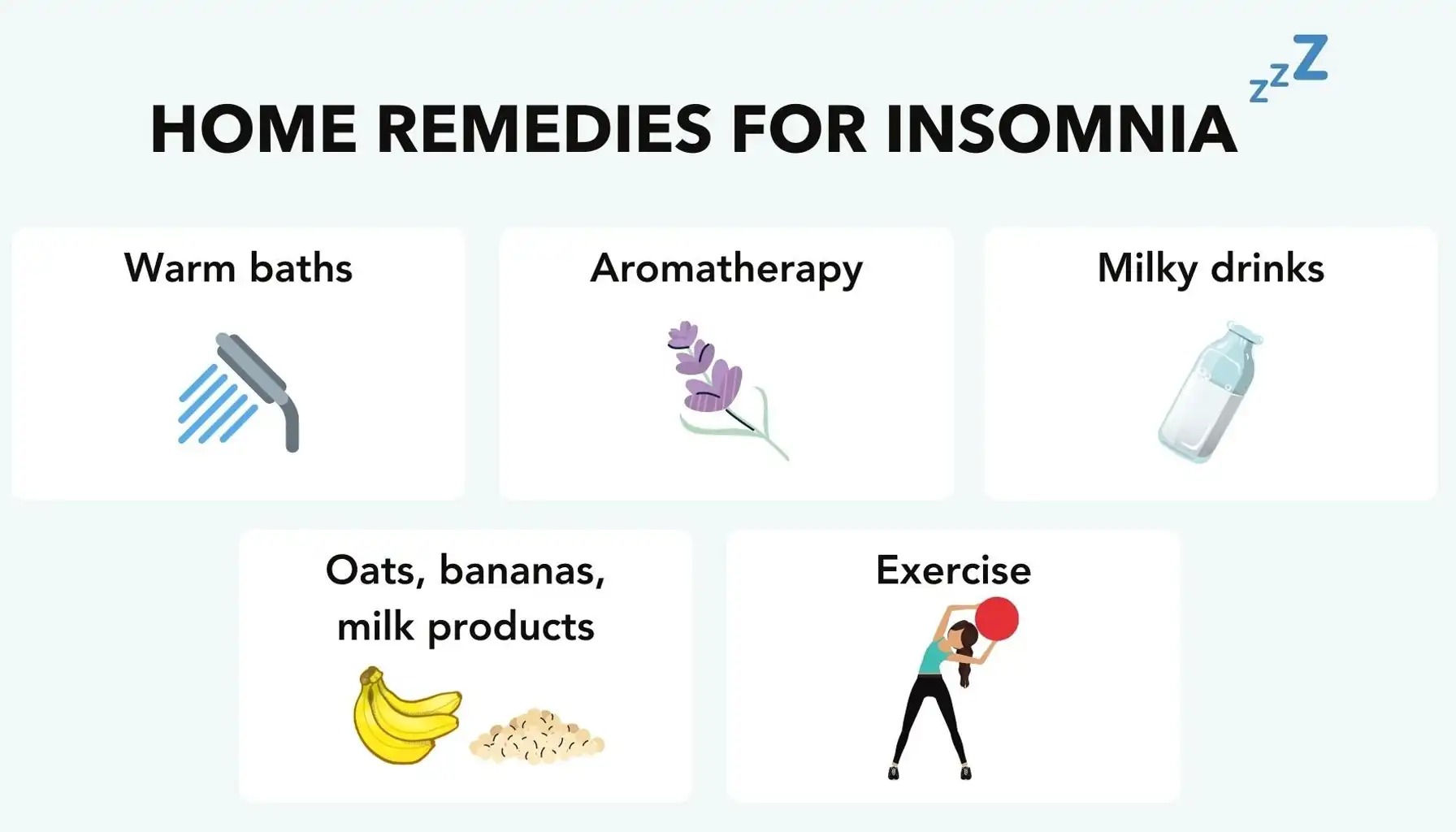When Night Becomes The Enemy: What Is Sleep Insomnia?

We've all had those nights where sleep just doesn't happen. But when it becomes a pattern, and you're constantly Googling "Why can't I sleep?", you might start wondering what insomnia means. It's more complex than just an occasional sleepless night, and it can seriously impact your day-to-day life.
We're going to talk about actionable solutions. Forget generic advice; we'll get into the nitty-gritty of proven treatments like CBT-I, even exploring how cognitive training exercises can make a difference.
Beyond that, we'll discuss what is good for insomnia, including lifestyle changes and other remedies to help you reclaim your nights. We'll also touch on things like VA ratings and the frustrating phenomenon of rebound insomnia, ensuring you have a comprehensive understanding of how to address this sleep disorder effectively.

What Is Insomnia?
Let's break down the different flavors of insomnia. It's not just one thing; there are several types, each with its own quirks. It's definitely insomnia. What is it that’s the first question on most people's minds when they're struggling to sleep?
Chronic
So what is chronic insomnia? We're talking about insomnia that happens at least three nights a week for three months or longer.
The struggle is real with this one – difficulty falling asleep, staying asleep, or waking up way too early. It becomes a chronic pattern, messing with your daily life. Often, it's tied to another medical condition or long-term stress.
And if you're wondering what is considered insomnia, this frequent occurrence certainly fits the bill.
Paradoxical
This one's a bit weird. With what is paradoxical insomnia, people complain of severely disrupted sleep – saying they barely sleep at all – but when researchers study their sleep in a lab, their sleep patterns look relatively normal.
They're underestimating how much they actually sleep. The perceived lack of sleep causes significant distress, even if sleep studies suggest otherwise.
Fatal Familial
Now, this is a rare and truly devastating one. If you hear what is fatal insomnia, know that it is another term for the same disease.
In short, what is fatal familial insomnia? It is a genetic prion disease that progressively destroys the thalamus, a brain region crucial for sleep regulation. It starts with worsening insomnia and eventually leads to physical and mental decline.
Psychophysiological

Let's dig into what is psychophysiological insomnia.
This is a learned form of insomnia. You get so anxious about not sleeping that you create a cycle of sleeplessness.
The bedroom becomes associated with wakefulness and frustration. This may be a good time to ask what is the root cause of insomnia? It can be any combination of these factors. It often requires a comprehensive evaluation by a doctor or sleep specialist to identify the underlying issues and develop an effective treatment plan.
Primary
What is primary insomnia? It’s diagnosed when insomnia isn't caused by an underlying health condition, medication, or substance use.
The definition and meaning is the same. So if you're wondering what is the meaning of insomnia, the meaning is often rooted in sleep-related behaviors.
You might be asking yourself, what is the definition of insomnia, but there isn't always a single definition.
Idiopathic
This is a lifelong form of insomnia that starts in childhood. It is a chronic form of insomnia and can be very difficult to treat.
So in short, what is idiopathic insomnia is usually more severe and presents throughout life. What is severe insomnia? It depends, but idiopathic insomnia is often in that category.
Adjustment
Also called acute insomnia, what is adjustment insomnia is short-term and triggered by a specific stressor, like a job change, a relationship issue, or even, what is pregnancy insomnia.
Once the stressor resolves, the insomnia usually goes away. It's also known as transient insomnia.
So what is the reason of insomnia? It is caused by situational stress. You may also consider what is the most common cause of insomnia? Life stressors.
Rebound
And finally, what is rebound insomnia? This happens when you stop taking sleep medication. Your insomnia comes back, often worse than before.
It's a temporary worsening of sleep problems after discontinuing sleep aids. This doesn't mean one should ask what is the opposite of insomnia, but rather get proper medical advice.
Also, what is insomnia a symptom of? The answer may be another underlying condition.
Reasons

Stress and Emotional Turmoil | |||
Life stressors (work, relationships, finances) trigger the body's stress response, making it difficult to relax and fall asleep. | The influence of Hustle Culture is getting bigger. The pressure to constantly be productive and "hustle" can lead to chronic stress and an inability to switch off. | ||
Pregnancy and Hormonal Fluctuations | |||
Significant hormonal changes during pregnancy can disrupt the body's natural sleep-wake cycle. | Physical changes and discomfort during pregnancy can also contribute to difficulties resting. | ||
Medical Conditions | |||
Conditions like arthritis, back pain, and fibromyalgia can make it difficult to find a comfortable sleeping position. | Because sleep apnea, asthma, and other breathing difficulties can interfere with airflow, they often result in people waking up in the middle of the night. | Your sleep can also suffer due to other medical problems. Problems with your heart or thyroid, among other things, can also lead to sleep problems. | |
Psychological Factors | |||
Mental health conditions can lead to racing thoughts, worry, and an inability to relax, making it difficult to fall asleep and stay asleep. | |||
Constant exposure to screens and digital devices can overstimulate the brain and interfere with the production of melatonin, a hormone that regulates sleep. | Disconnecting from technology before bed can help calm the mind and promote relaxation, improving your ability to get solid rest. | ||
Assessment and Treatment
Navigating the VA system can be complex. For veterans experiencing persistent challenges getting rest, it's crucial to understand the assessment process.
The VA uses a detailed rating schedule to determine the severity of a service-connected mental health condition related to quality of rest, which directly affects disability compensation.

Frequency and Intensity of Symptoms | The VA assesses how often you experience restlessness and how severe the symptoms are (e.g., difficulty falling asleep, frequent awakenings, daytime fatigue). |
Impact on Daily Functioning | The VA evaluates how restlessness affects your ability to perform daily activities, such as work, social interactions, and personal care. |
Medical History | The VA reviews your medical records to understand any pre-existing conditions or injuries that may contribute to difficulties getting rest. |
What is the VA rating for insomnia? | This influences disability compensation and access to resources and support services. |
Psychotherapeutic Approaches
Cognitive Behavioral Therapy for Restlessness (CBT-R): CBT-R helps identify and change negative thoughts and behaviors that perpetuate the cycle of restlessness.
Cognitive Restructuring: Challenging and modifying negative thoughts and beliefs about the lack of rest.
Stimulus Control Therapy: Reassociating the bedroom with rest by only going to bed when tired, leaving the bed if you can't fall asleep, and avoiding activities in bed other than rest.
Relaxation Techniques: Learning and practicing relaxation techniques, such as deep breathing, progressive muscle relaxation, and mindfulness meditation, to reduce stress and promote relaxation.
Medication Options
In some cases, medication may be necessary to help break the cycle of restlessness, especially when combined with therapy.

Potential Side Effects | Discuss potential side effects of the medication with your doctor. |
Long-Term Dependence | Using medication to induce rest for prolonged periods can lead to dependence, so it's important to use them cautiously and under medical supervision. |
What is the first drug of choice for insomnia? | This will vary from person to person, so it is best to speak with a medical doctor for advice. |
Alternative Methods
Meditation | Mindfulness meditation can help you focus on the present moment and reduce racing thoughts. |
Herbal Remedies | Some people find relief using herbal remedies, such as chamomile, valerian root, and passionflower. It is important to research what these remedies do and discuss with your doctor or expert if they are the right solution for you. |
Although many would consider asking "what is an insomnia cookie?", cookies are unlikely to help with restless nights. |





